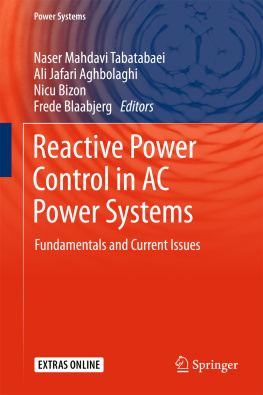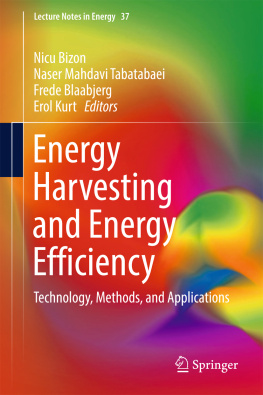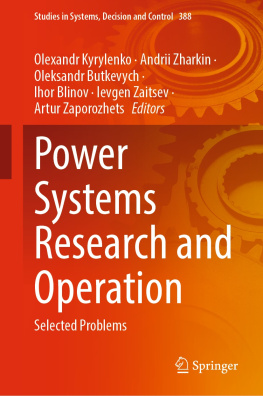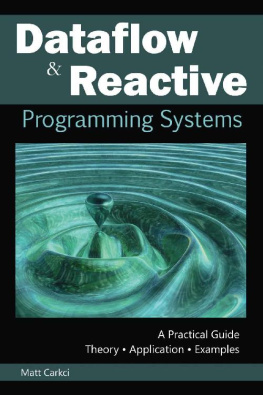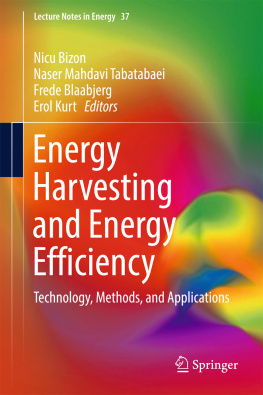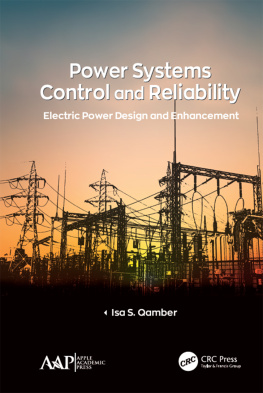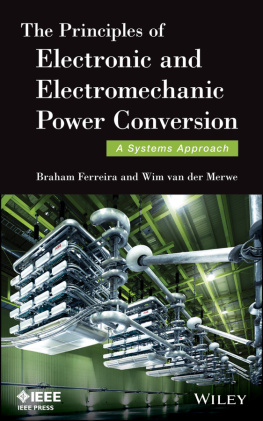Naser Mahdavi Tabatabaei Ali Jafari Aghbolaghi Nicu Bizon - Reactive Power Control in AC Power Systems
Here you can read online Naser Mahdavi Tabatabaei Ali Jafari Aghbolaghi Nicu Bizon - Reactive Power Control in AC Power Systems full text of the book (entire story) in english for free. Download pdf and epub, get meaning, cover and reviews about this ebook. year: 0, publisher: Springer International Publishing, Cham, genre: Romance novel. Description of the work, (preface) as well as reviews are available. Best literature library LitArk.com created for fans of good reading and offers a wide selection of genres:
Romance novel
Science fiction
Adventure
Detective
Science
History
Home and family
Prose
Art
Politics
Computer
Non-fiction
Religion
Business
Children
Humor
Choose a favorite category and find really read worthwhile books. Enjoy immersion in the world of imagination, feel the emotions of the characters or learn something new for yourself, make an fascinating discovery.
- Book:Reactive Power Control in AC Power Systems
- Author:
- Publisher:Springer International Publishing, Cham
- Genre:
- Year:0
- Rating:5 / 5
- Favourites:Add to favourites
- Your mark:
- 100
- 1
- 2
- 3
- 4
- 5
Reactive Power Control in AC Power Systems: summary, description and annotation
We offer to read an annotation, description, summary or preface (depends on what the author of the book "Reactive Power Control in AC Power Systems" wrote himself). If you haven't found the necessary information about the book — write in the comments, we will try to find it.
Reactive Power Control in AC Power Systems — read online for free the complete book (whole text) full work
Below is the text of the book, divided by pages. System saving the place of the last page read, allows you to conveniently read the book "Reactive Power Control in AC Power Systems" online for free, without having to search again every time where you left off. Put a bookmark, and you can go to the page where you finished reading at any time.
Font size:
Interval:
Bookmark:
Fundamentals of Reactive Power in AC Power Systems
- globalization means the inter-country or inter-continental networks integration, energy market and investment combination and technological integration;
- liberalization is associated with the development of regional or inter-regional energy markets;
- decentralization assumes the development of small and large units power, together with upgrading and renewal of transmission and distribution networks, and introducing of DG concept;
- diversification means the increasing of multitude of energy sources (fuels, renewable energy sources e.a.) and of types of power plants;
- modernization results from the development of old technologies and the implementation of new and efficient ones.
- criteria of nominal voltage is important because with its help is determine the power and distance that can be transmitted, the cost of the transmission line and its equipment e.a. EPS classification taking into account the nominal voltage is presenting in Table .Table 1.1Classification of EPSClass of EPSNominal voltageLow voltage (LV)501000 VMedium voltage (MV)135 kVHigh voltage (HV)35275 kVVery high voltage (VHV)>300 kV
Font size:
Interval:
Bookmark:
Similar books «Reactive Power Control in AC Power Systems»
Look at similar books to Reactive Power Control in AC Power Systems. We have selected literature similar in name and meaning in the hope of providing readers with more options to find new, interesting, not yet read works.
Discussion, reviews of the book Reactive Power Control in AC Power Systems and just readers' own opinions. Leave your comments, write what you think about the work, its meaning or the main characters. Specify what exactly you liked and what you didn't like, and why you think so.

